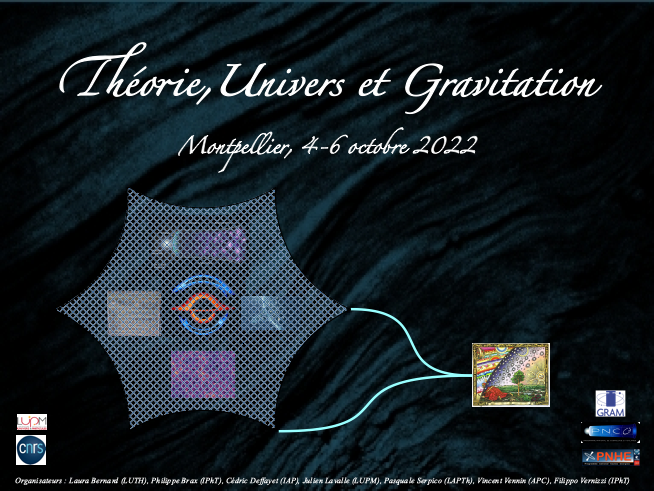Orateur
Description
Black holes formed in the early Universe (PBHs) could constitute (a component of) the dark matter. In this talk I will consider primordial black holes (PBHs) of O(1) - O(100) solar masses. First, I will discuss the possibility of detecting PBHs in the Milky Way through the process of gas accretion, presenting a comprehensive study of the uncertainties associated to this observation channel. Moving on to cosmological distances, merging black holes in the same mass range can be detected through gravitational waves. I will discuss the potential of the Einstein Telescope, a planned third-generation GW observatory, to identify and measure the abundance of a subdominant population of PBHs, based exclusively on redshift evolution of the observed merger rate. The analysis I will present is based on the generation of realistic mock catalogues of binary black hole merger events, consisting of the inferred luminosity distances and corresponding errors.
